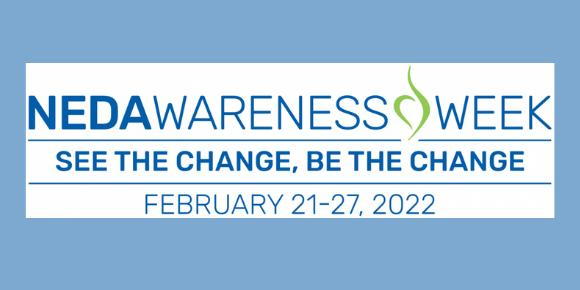Navigating Home Life for Recovery

- posted: Feb. 23, 2022
Navigating Home Life for Recovery
by: Emily Gogel, RDN, LD
This week, we were able to interview a caregiver as shares her experience on navigating home life with a child with an eating disorder.
After having a child diagnosed with an eating disorder or being diagnosed yourself, the home and food environment are going to change. Read below to see what helped this family, and how some tactics may work for you as well.
**Please note, this is not to be used in place of medical treatment or recommendations. The below information is subjective and individualized for this child and family.
Q: After you first sought out treatment for your child, how did you start to foster a recovery focused environment at home?
A: I dove into educating myself and my family about the nature of my child’s eating disorder and what treatment would look like. I learned quickly to follow the motto “Life stops until you eat.” I took time off of work to focus solely on my child’s recovery. My daughter understood that she would need to take a pause on social and extracurricular activities in order to allow her mind and body to heal. I kept a variety of foods stocked in the home to allow her choices for meals and snacks. Distractors during meals such as playing a game or watching a tv show together helped my daughter not focus as much on the task of eating. Following meals, we would have an activity planned such as painting or playing with the dog to help keep intrusive thoughts at bay. We hung positive affirmation signs in the home to remind her how strong and brave she was as she went through this process. We did set up a reward system that encouraged her to tackle her fears and at the end of the week to reward herself for the hard work.
Q: What were your biggest challenges, and how did you hurdle them?
A: Learning through trial and error how best to communicate with my child when she was anxious or distressed was challenging. I learned quickly that the only way we were going to be successful with treatment was through tough love, standing my ground on what I knew was best for my daughter as opposed to listening to her malnourished brain that was feeding her manipulative, controlling thoughts. It was extremely helpful to engage in family-based therapy as it allowed us to talk as a family with a therapist present about our challenges and help problem solve solutions.
Q: Were any family members not on board? If so, how did you navigate this?
A: When my daughter was first diagnosed, our physician gave us a packet from F.E.A.S.T. called family guides. The packet included information concerning coming to terms with a loved one’s eating disorder, the neurobiology behind eating disorders, and treatment options. Immediately following her diagnosis, I sent this information to our extended family in order for them to better understanding what our daughter and family were dealing with and how they could be supportive. We were lucky in that everyone was supportive throughout our entire recovery process. I did find it difficult to navigate having a younger sibling in the home during treatment, as it did take time and attention away from her and she had difficulty at times understanding why her sister was struggling. I made a point to take time outside of meals to spend one on one with her and sought out professional counseling for her to help her express her feelings and emotions.
Q: Did you turn to any helpful resources or support groups?
A: F.E.A.S.T. website has a wealth of information about eating disorders and treatment. I found comfort and hope by reading stories from other parents about their child’s recovery process. I also joined a private Facebook forum through F.E.A.S.T. that allowed me to have support from other parents who were currently experiencing the same trials with their children. Two books I would highly recommend are: Help your teenager beat an eating disorder by James Lock and Daniel LeGrange, and Skills-based learning for caring for a loved one with an eating disorder by Janet Treasure. Learning how to communicate effectively during and outside of meals proved to be a valuable tool in my daughter’s recovery and building her trust in me to help guide her through this process.
Q: What advice would you give to a parent with a child newly diagnosed with an ED?
A: Recovery is not a linear process. It will be two steps forward and one step back. Don’t lose faith that the progress you’ve made is gone, but it continues to be a building block toward recovery. Take time for yourself as it is a daunting and overwhelming process to help a child recover from an eating disorder. Allow family/friends that you trust to help give you a break. Build a team of professionals that not only you but your child trusts and can open up to.
Resources mentioned during this interview:
F.E.A.S.T - aka Families Empowered and Supporting Treatment for Eating Disorders
